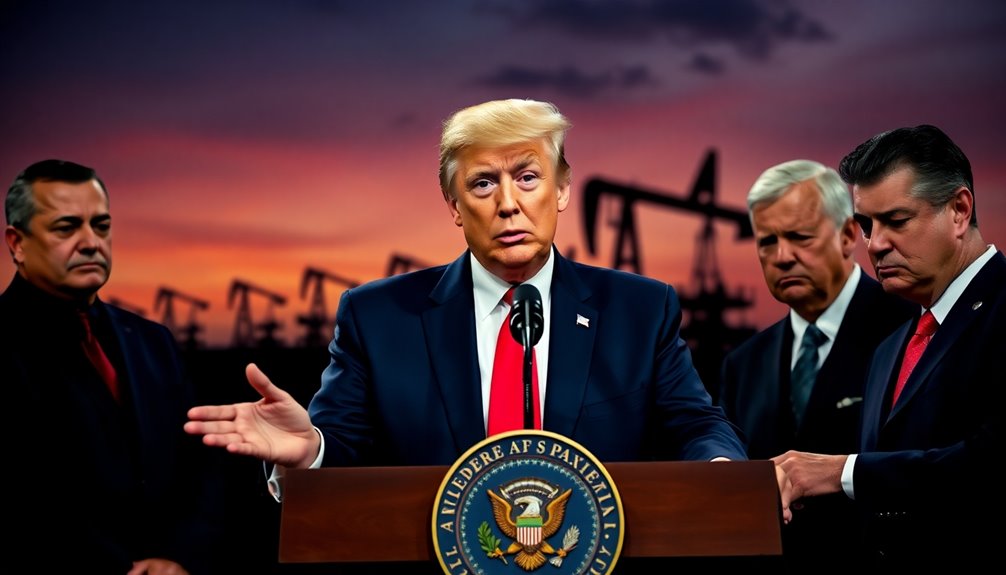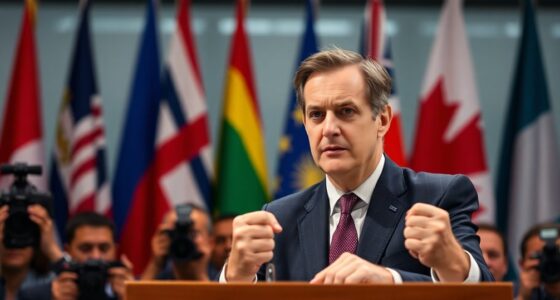
In a bold move, former President Trump has announced a hefty 25% tariff on countries purchasing Venezuelan oil and gas, effective April 2, 2025. This decision primarily targets major buyers like China and India, aiming to pressure Venezuela and its trade partners. You might wonder how this will impact global energy markets and economies reliant on Venezuelan oil, especially given Venezuela’s significant oil reserves.
The economic implications are vast. You could see disruptions in global trade, especially in energy markets where stability is crucial. With the announcement already causing an uptick in oil prices, you might feel the pinch at the gas pump soon. The U.S. economy could also face repercussions, as higher oil prices might translate to increased costs for consumers and businesses. Chevron, a key player in the oil industry, is likely bracing for uncertainty regarding the enforcement of these tariffs. Additionally, Venezuela exported around 500,000 barrels per day to China in February 2025, highlighting the scale of trade that could be affected.
Economic implications are significant, with potential disruptions in trade and rising oil prices affecting consumers and businesses alike.
China, being a major buyer of Venezuelan oil, will be significantly affected. You can expect that India, too, will face economic challenges as it imports substantial amounts of Venezuelan oil. As global markets watch these developments, the uncertainty surrounding enforcement mechanisms raises concerns. Tariffs apply to all trade with the U.S. for countries importing Venezuelan oil, but you might wonder how the government will document and enforce these tariffs effectively.
The immediate increase in oil prices reflects the market’s sensitivity to such announcements. You could see supply dynamics shift, creating volatility in oil markets. Venezuela’s oil reserves are vast, but the economic pressure from these tariffs could further strain the regime, complicating international relations even more.
The geopolitical context adds another layer of complexity. Tensions between the U.S. and Venezuela over various issues, including immigration and governance, have been escalating. Trump’s tariffs might exacerbate these tensions, especially given the history of sanctions that have strained relationships.
Legal challenges to the tariff imposition are possible. You might see a broader policy framework emerge aimed at influencing trade partners. This decision reflects ongoing tensions between the U.S. and various trading nations, impacting regional stability in South America.
As these developments unfold, you’ll want to keep an eye on how countries respond and the ripple effects on global trade dynamics.









